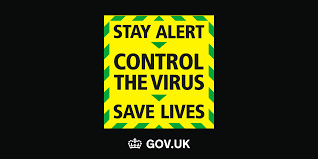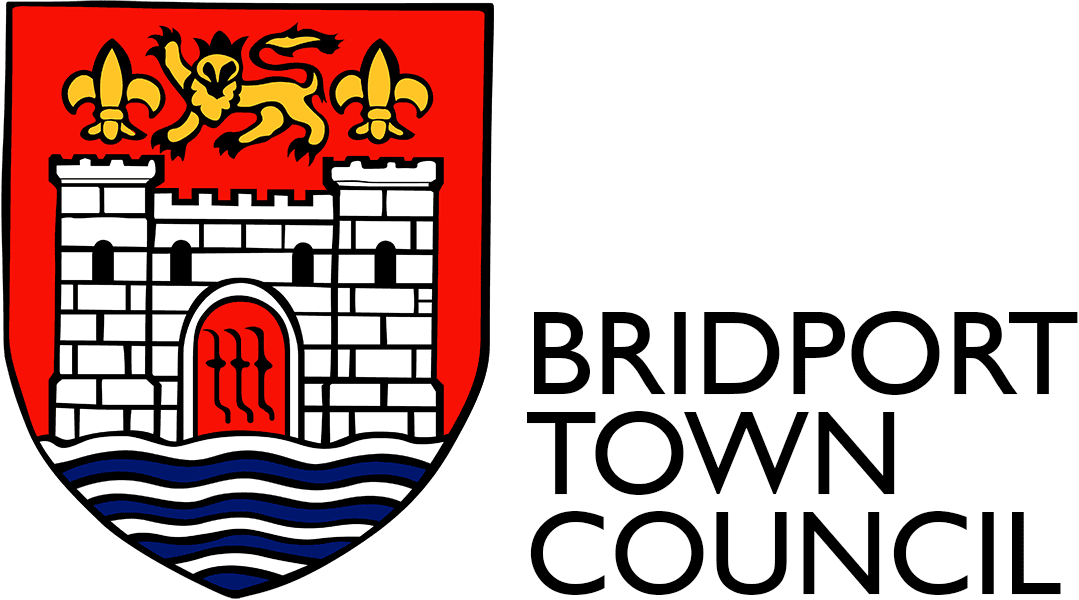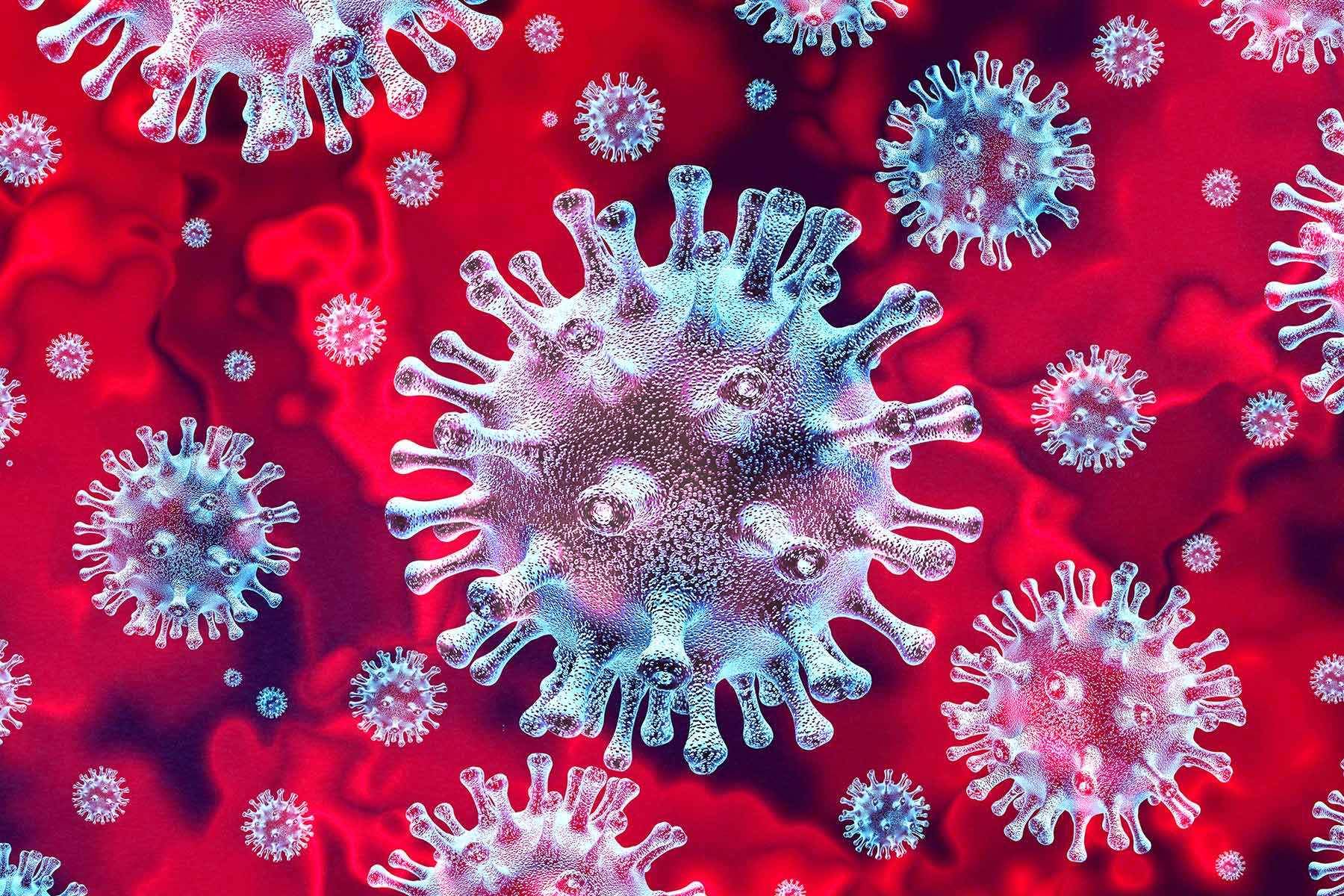
Return to Lockdown
As we find ourselves once more moving towards another Covid-19 lockdown on Thursday 5th November we all need to take stock of how we live our everyday lives in order to drive down the number of cases and save lives.
Over the last few weeks, there has been a significant rise in confirmed cases of Covid-19 in the Dorset Council area. At the moment, the Dorset Council area remains in Tier 1 (medium local alert level). However the table below clearly shows a very worrying increase in Covid-19 cases during October.
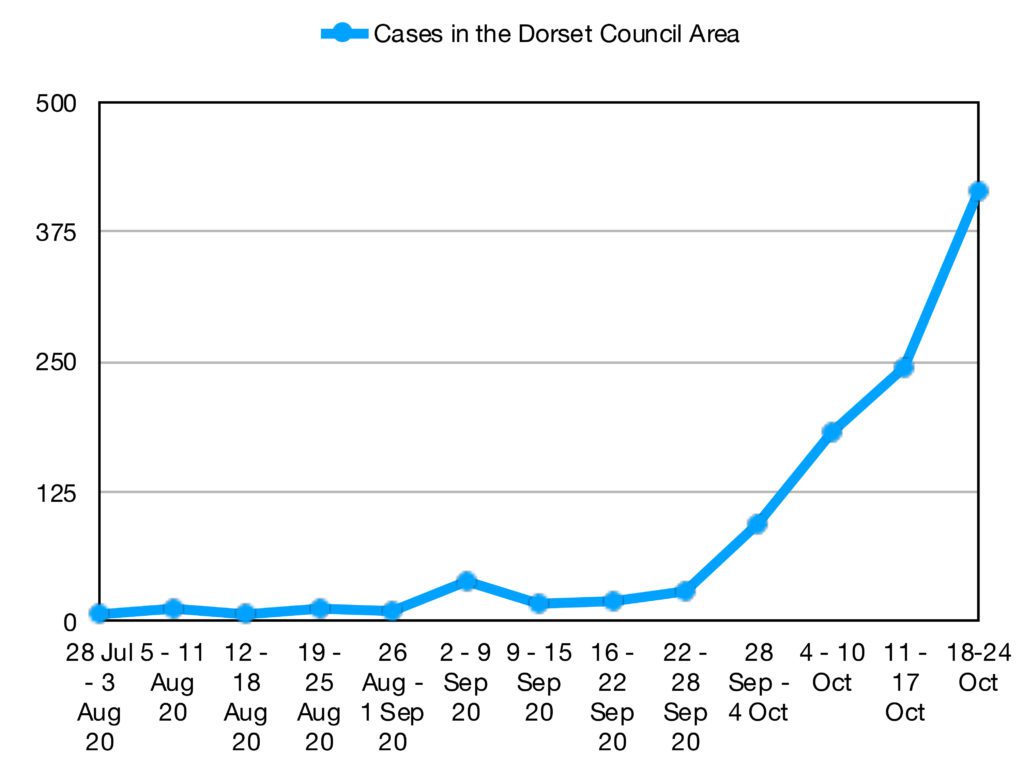
Case numbers are continuing to go up particularly in the 18-30 age range and there are more patients in our hospitals who are testing positive with Covid-19.
Compared with the situation in other areas of the country it would be all too easy to be complacent about the level of personal risk. This is an extremely dangerous stance to take given the rapid rise in the number of cases in the Dorset Council area over recent weeks. The situation in the Dorset Council area is serious.
It is therefore vital that everyone does their bit and follows the Government guidelines otherwise we will see ourselves moving to a higher tier. This means:
- We all need to limit contact with people outside of our household.
- Anyone with symptoms of Covid-19 must self-isolate immediately and book a test.
- If you are waiting for a test result you and your whole household must self-isolate until you get the result.
- If you test positive or have been identified as a close contact, you must self-isolate.
- Self-isolating means you must not leave your home at all. Do not go to work or school, do not go to the shops and do not leave the house for exercise.
It’s very important to do what you can to reduce the risk of you and other people getting ill with coronavirus. Remember you can spread the virus even if you do not have symptoms.
Please Do
- try to stay at least 2 metres (3 steps) away from anyone you do not live with (or anyone not in your support bubble)
- wash your hands with soap and water often – do this for at least 20 seconds
- use hand sanitiser gel if soap and water are not available
- wash your hands as soon as you get home
- cover your mouth and nose with a tissue or your sleeve (not your hands) when you cough or sneeze
- put used tissues in the bin immediately and wash your hands afterwards
Please Don’t
- touch your eyes, nose or mouth if your hands are not clean
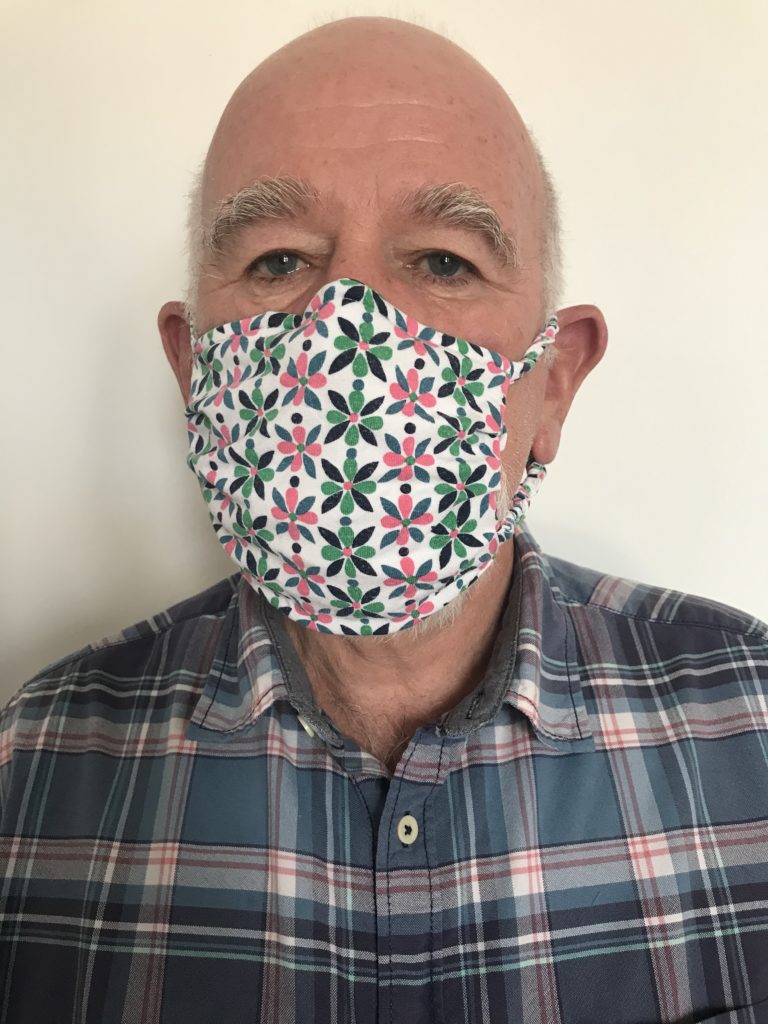
Face coverings
There are some places where you must wear a face covering, such as:
- on public transport
- in shops
- when you go to hospital appointments or visit someone in hospital
If you can, wear something that covers your nose and mouth in places where it’s hard to stay away from other people.
Your Questions Answered
If you are in any doubt as to what you should be doing in order to maximise the personal safety of your immediate family, household and of those around you use the link to GOV.UK below to find out more about:
- Stay at home
- Staying safe outside the home (Social Distancing)
- Meeting with family and friends
- Businesses and venues
- Weddings, civil partnerships, religious services and funerals
- Going to work
- Going to school, college and university
- Childcare and children’s activities
- Protecting people more at risk from coronavirus
- Visiting relatives in care homes
- Travel
- Financial support
https://www.gov.uk/guidance/new-national-restrictions-from-5-november#stay-at-home
